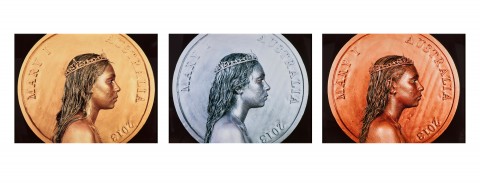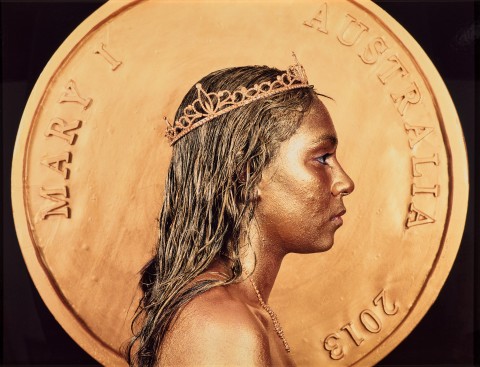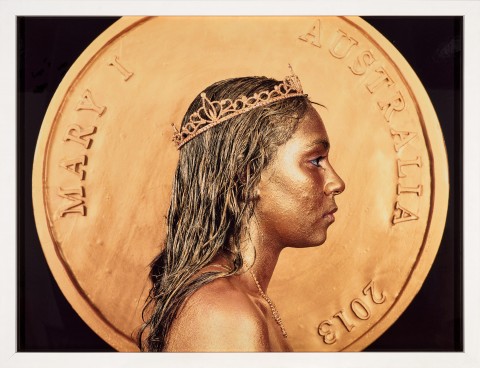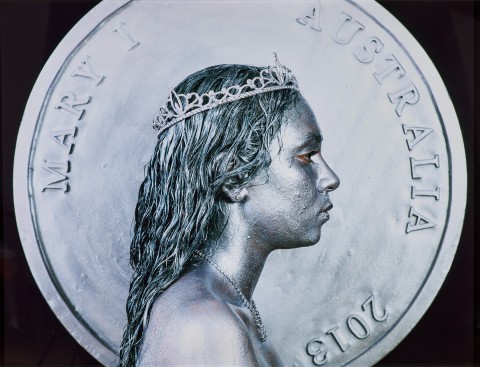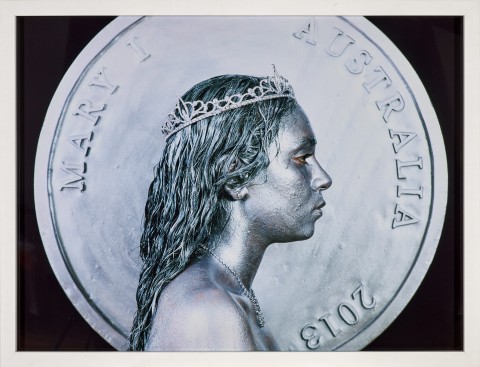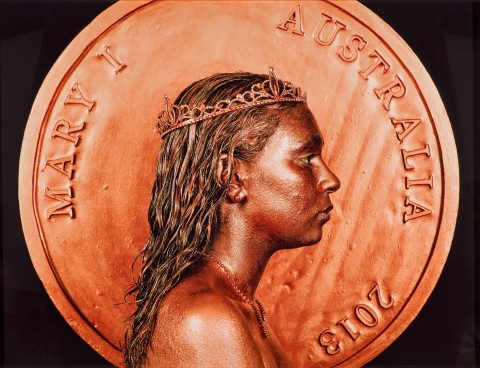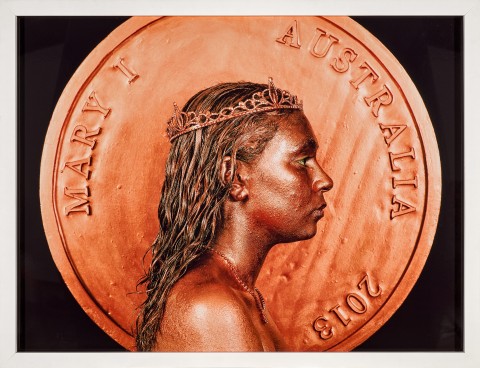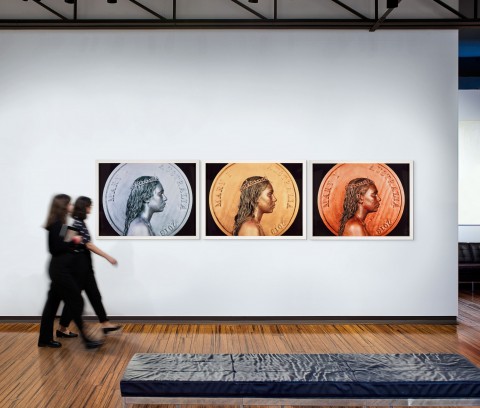BRONZE GIRL, SILVER GIRL, GOLD GIRL, 2008
DARREN SIWES
suite of 3 Type C prints on Kodak Endura Metallic paper
90.0 x 120.0 cm (each)
each signed on gallery label verso: D Siwes
each bears inscription on gallery label verso: artist's name, title, date, edition, medium and size
from the OZ OMNIUM REX ET REGINA series
Greenaway Art Gallery, Adelaide (label attached verso)
Private collection, Adelaide
Oz Omnium Rex Et Regina, Greenaway Art Gallery, Adelaide, 25 July – 17 August 2008
With his enduring interest in issues of class, culture, place and identity – and the inequities pervading these systems – acclaimed Adelaide-born artist, Darren Siwes, is fast becoming one of the most highly sought-after photographic artists of his generation. A Ngalkban man of Indigenous and Dutch descent, Siwes completed a Bachelor of Visual Arts (Hons) at the University of South Australia in 1996, and subsequently a Graduate Diploma of Education in 1997. In 2002, he was awarded a Samstag International Visual Arts Scholarship which enabled him to undertake a Master of Fine Art at the Chelsea School of Art in London, and today his work is held in numerous major public collections, both nationally and abroad, including The Art Gallery of South Australia, Adelaide; the National Gallery of Australia, Canberra; and the Museo Nacional Centro de Arte Reina Sofia Madrid, Spain.
Inspired by contemporary Indigenous artists such as Tracey Moffatt and Gordon Bennett, Siwes’ work similarly explores space, place and identity, highlighting racial tensions and the reality of the perceptions of Aboriginal people. In particular, he has achieved acclaim for his nocturnal images of ethereal figures, created using time-lapse photography and shot in recognisable landmarks around Adelaide, the United Kingdom and most recently, Perth. Invariably featuring either Siwes or his wife as models, the resultant eerily lit photographs of ghostly Aboriginal figures thus allude to Indigenous people’s integration within white society – but also, their simultaneous alienation and detachment from it.
Belonging to his earlier photographic series, Oz Omnium Rex Et Regina, first unveiled at Greenaway Art Gallery in July – August 2008, the three photographic portraits offered here similarly explore such abiding concerns. Drawing upon the symbol of the coin to signify financial and cultural exchange and the enduring power of representation, the images thus wittingly demonstrate the way in which class delineations and ingrained hierarchical systems could mean the difference between a mug shot or a head of state. Painted in colours of power – bronze, silver and gold – thus each Indigenous figure is a portrait of optimism, with Siwes suspending reality to posit hypothetical ‘realities’, including equality for all. What if Aboriginal men and women were appointed heads of state? If an Aboriginal woman was Queen, would she be revered? Prompting contemplation of what actually is, what is constructed and what can be, the portraits moreover emphasise the body as a site of politics, marked by culture and society, and its specific implications for Indigenous Australians.
As Siwes reflects, ‘…I don’t see my role is to change the world – but I do think that art can influence society both in a good or bad way in relation to their perceptions of superiority and class. I also don’t want to make people feel guilty about the class they may well be fortunate enough to be in, or guilty of – as some ‘post-colonial artists’ do – the past mistakes resulting in the tragedy which happened to the Aboriginal people. As an artist I am happy to just create work which comments on the differences in our classes and societies, and in the inequalities that exist.’1
1. Siwes, cited at https://www.turnergalleries.com.au/artists/darren_siwes.php (accessed February 2024)
VERONICA ANGELATOS
